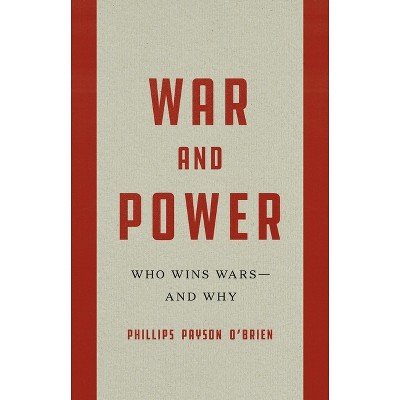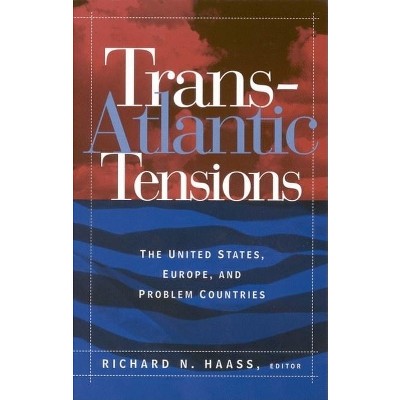Sponsored

Inheritance - by Mara E Karlin (Paperback)
In Stock
Sponsored
About this item
Highlights
- Exploring how the U.S. military can move beyond Iraq and AfghanistanDespite its lengthy war fighting experience and high-technology weapons, the military is woefully unprepared for future wars because of a conflicted legacy of long involvement in war without end and uncertainty about the future security environment.
- About the Author: Mara E. Karlin was director of Strategic Studies and associate professor at the Johns Hopkins School of Advanced International Studies and a nonresident senior fellow at the Brookings Institution.
- 320 Pages
- Political Science, Public Policy
Description
About the Book
Exploring how the U.S. military can move beyond Iraq and Afghanistan Despite its lengthy war fighting experience and high-technology weapons, the military is woefully unprepared for future wars because of a conflicted legacy of long involvement in war without end and uncertai...Book Synopsis
Exploring how the U.S. military can move beyond Iraq and Afghanistan
Despite its lengthy war fighting experience and high-technology weapons, the military is woefully unprepared for future wars because of a conflicted legacy of long involvement in war without end and uncertainty about the future security environment. But the United States cannot simply hit the reset button. If the U.S. military seeks to win in the future, it must acknowledge and reconcile with the inheritance of its long and failed wars. This book seeks to help them do so.
Review Quotes
In between her stints of service in the Pentagon, first under U.S. President Barack Obama and now under President Joe Biden, Karlin explored what went wrong with the two big U.S. wars of this century, in Afghanistan and Iraq. She considered, in turn, how the military went to war, how it waged war, who served in the ranks, and who led, before addressing what the prosecution of these wars meant for future conflicts. To this end, she interviewed around 100 civilian and military figures. Quotes from these interviews enliven her book and help bring home the importance of personalities, leadership, the emotions that can be aroused by apparently dry debates about civil-military relations, and the dangers of too great a separation between the armed forces and the society they serve. Americans routinely express gratitude for soldiers without really understanding what their service entails or the toll of long tours in hostile environments. She urges continued reflection on mistakes as well as achievements, better dialogue between the civilian and military leadership, and holding them both to proper account.
About the Author
Mara E. Karlin was director of Strategic Studies and associate professor at the Johns Hopkins School of Advanced International Studies and a nonresident senior fellow at the Brookings Institution. Karlin previously served in national security roles for five U.S. secretaries of defense. She is the author of Building Militaries in Fragile States: Challenges for the United States.Shipping details
Return details
Frequently bought together


Guests also viewed















